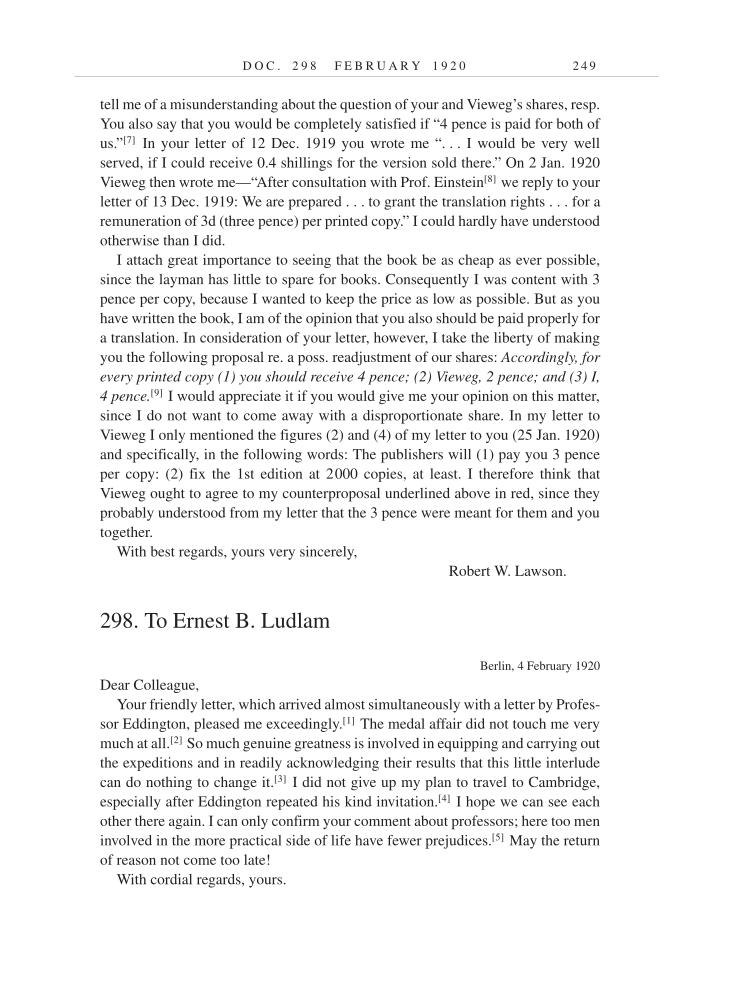D O C . 2 9 8 F E B R U A R Y 1 9 2 0 2 4 9 tell me of a misunderstanding about the question of your and Vieweg’s shares, resp. You also say that you would be completely satisfied if “4 pence is paid for both of us.”[7] In your letter of 12 Dec. 1919 you wrote me “. . . I would be very well served, if I could receive 0.4 shillings for the version sold there.” On 2 Jan. 1920 Vieweg then wrote me—“After consultation with Prof. Einstein[8] we reply to your letter of 13 Dec. 1919: We are prepared . . . to grant the translation rights . . . for a remuneration of 3d (three pence) per printed copy.” I could hardly have understood otherwise than I did. I attach great importance to seeing that the book be as cheap as ever possible, since the layman has little to spare for books. Consequently I was content with 3 pence per copy, because I wanted to keep the price as low as possible. But as you have written the book, I am of the opinion that you also should be paid properly for a translation. In consideration of your letter, however, I take the liberty of making you the following proposal re. a poss. readjustment of our shares: Accordingly, for every printed copy (1) you should receive 4 pence (2) Vieweg, 2 pence and (3) I, 4 pence.[9] I would appreciate it if you would give me your opinion on this matter, since I do not want to come away with a disproportionate share. In my letter to Vieweg I only mentioned the figures (2) and (4) of my letter to you (25 Jan. 1920) and specifically, in the following words: The publishers will (1) pay you 3 pence per copy: (2) fix the 1st edition at 2000 copies, at least. I therefore think that Vieweg ought to agree to my counterproposal underlined above in red, since they probably understood from my letter that the 3 pence were meant for them and you together. With best regards, yours very sincerely, Robert W. Lawson. 298. To Ernest B. Ludlam Berlin, 4 February 1920 Dear Colleague, Your friendly letter, which arrived almost simultaneously with a letter by Profes- sor Eddington, pleased me exceedingly.[1] The medal affair did not touch me very much at all.[2] So much genuine greatness is involved in equipping and carrying out the expeditions and in readily acknowledging their results that this little interlude can do nothing to change it.[3] I did not give up my plan to travel to Cambridge, especially after Eddington repeated his kind invitation.[4] I hope we can see each other there again. I can only confirm your comment about professors here too men involved in the more practical side of life have fewer prejudices.[5] May the return of reason not come too late! With cordial regards, yours.
